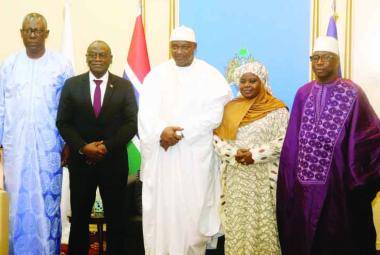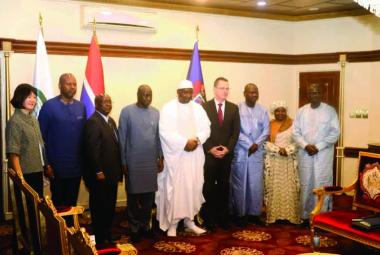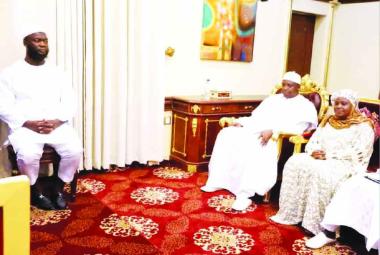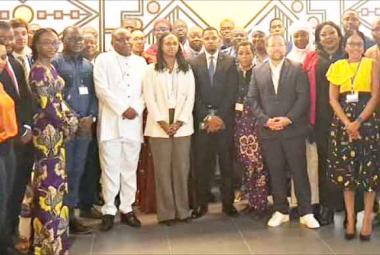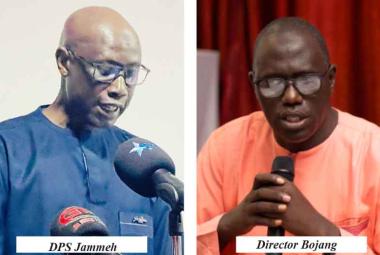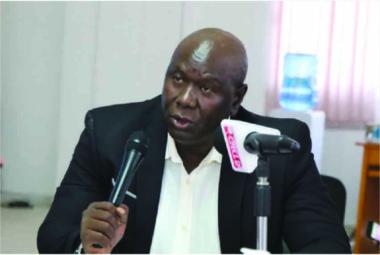By Anna Marie Valentine
The Ministry of Petroleum and Energy (MoPE) last week held a workshop on the findings of a recently concluded five-day study tour to Ghana. The workshop brought together various stakeholders from the private sector, as well as government agencies and ministries. It was characterised by detailed presentations on insights gained from the study tour and discussions on how these practices can be successfully implemented in The Gambia.
The study tour is a key activity of the ‘National Framework for Leapfrogging to Energy Efficient and Climate Friendly Air Conditioners and Refrigerators’ project.
The tour team comprised a technical committee made up of staff from relevant Ministries, Departments and Agencies. The technical committee gathered invaluable information from various organisations, and agencies including the Ghana Energy Commission, The Ghana Standards Authority, and the Ministry of Energy in Ghana among others. It also got insight on the enactment of regulations for energy efficient products and the development of financially sound mechanisms to boost the purchase of climate-friendly and energy efficient appliances in The Gambia.
In his statement during the opening ceremony, Permanent Secretary at MoPE, Mr Lamin Camara, said the project, financed by the Green Climate Fund (GCF), aimed to develop an integrated strategy that will result in a legislative framework for energy efficient and climate-friendly air conditioners and refrigerators in The Gambia. “The tour was designed to assist Gambian stakeholders to gain a practical understanding of the implementation of minimum energy performance standards and the impact of various financial mechanisms to proliferate the availability of energy-efficient refrigerators and air conditioners,” he stated.
The Principal Energy Officer at the Ministry of Petroleum and Energy, Mr Peter D. Mendy, who headed the delegation to Ghana guided participants through a report on the study tour. He highlighted the objectives, activities, lessons and recommendations gathered from their engagements.
The delegation had the chance to learn from Ghana’s experiences in implementing their national framework and now have the responsibility to use the findings and practices learnt from the tour to successfully implement the project in The Gambia.

